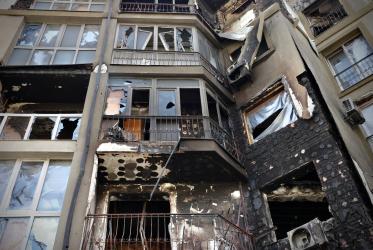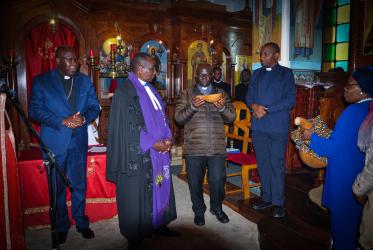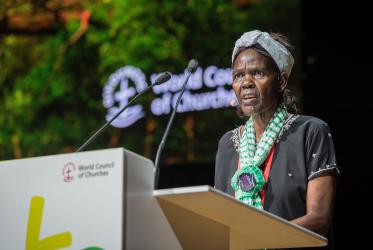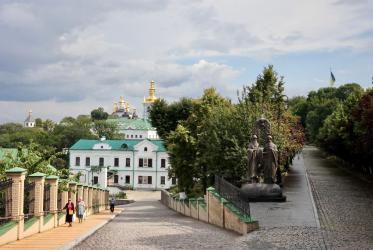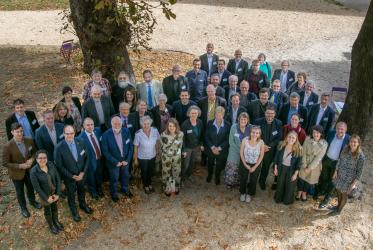Displaying 1 - 20 of 34
Christians in Kenya mark Week of Prayer for Christian Unity
23 January 2024
Peace Pilgrim Agnes Abuom dies at 73
01 June 2023
Rethinking Ecological Relationships in the Anthropocene era
11 - 13 February 2021
Kenya mourns the late Prof. Samuel John Mbiti
08 October 2019
WCC well-represented in Religions for Peace leadership
07 October 2019
Compassion flow in Kenya after terrorist attack
18 January 2019
Romani people seek “lives of decency, dignity, and justice”
27 September 2018
